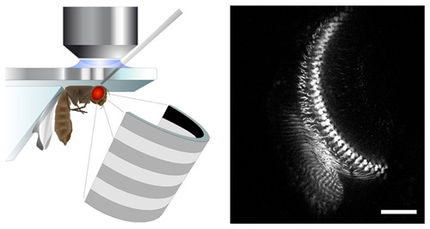Bayer HealthCare: positive phase 2 results for the VEGF Trap-Eye
Advertisement
Bayer HealthCare and development partner Regeneron Pharmaceuticals, Inc. announced positive results from a Phase 2 study evaluating the VEGF Trap-Eye in the neovascular form of age-related macular degeneration (wet AMD), one of the leading causes of blindness in adults. The VEGF Trap-Eye met both the primary study endpoint of a statistically significant reduction in retinal thickness and the key secondary endpoint of improvement of visual acuity after 12 weeks. Detailed findings were presented at the Retina Society Conference in Boston, MA.
In this double-masked, prospective, randomized, multi-center Phase 2 trial, 157 patients were randomized to five groups and treated with the VEGF Trap-Eye in one eye. Two groups received monthly doses of 0.5 or 2.0 milligrams (mg), and three groups received quarterly doses of 0.5, 2.0, or 4.0 mg of the VEGF Trap-Eye (at baseline and week 12). Patients were monitored for safety, retinal thickness and visual acuity.
The VEGF Trap-Eye met the primary study endpoint of a statistically significant reduction in retinal thickness,a measure of disease activity, after 12 weeks of treatment compared with baseline (all five dose groups combined: mean decrease of 119 microns, p<0.0001). The mean change from baseline in visual acuity, a key secondary endpoint of the study, also demonstrated a statistically significant improvement (all groups combined: increase of 5.7 letters, p<0.0001).
There were no drug-related ocular or systemic serious adverse events (SAE) reported. Treatment with the VEGF Trap-Eye was generally well tolerated. The most common adverse events were those typically associated with intravitreal injections.
All study participants received a further dose at week 12 and preliminary week 16 results showed that retinal thickness for all groups combined continued to improve with a mean decrease of 159 microns versus baseline (p<0.0001). The mean change from baseline in visual acuity also continued to improve (all groups combined: increase of 6.6 letters versus baseline, p<0.0001).






















































